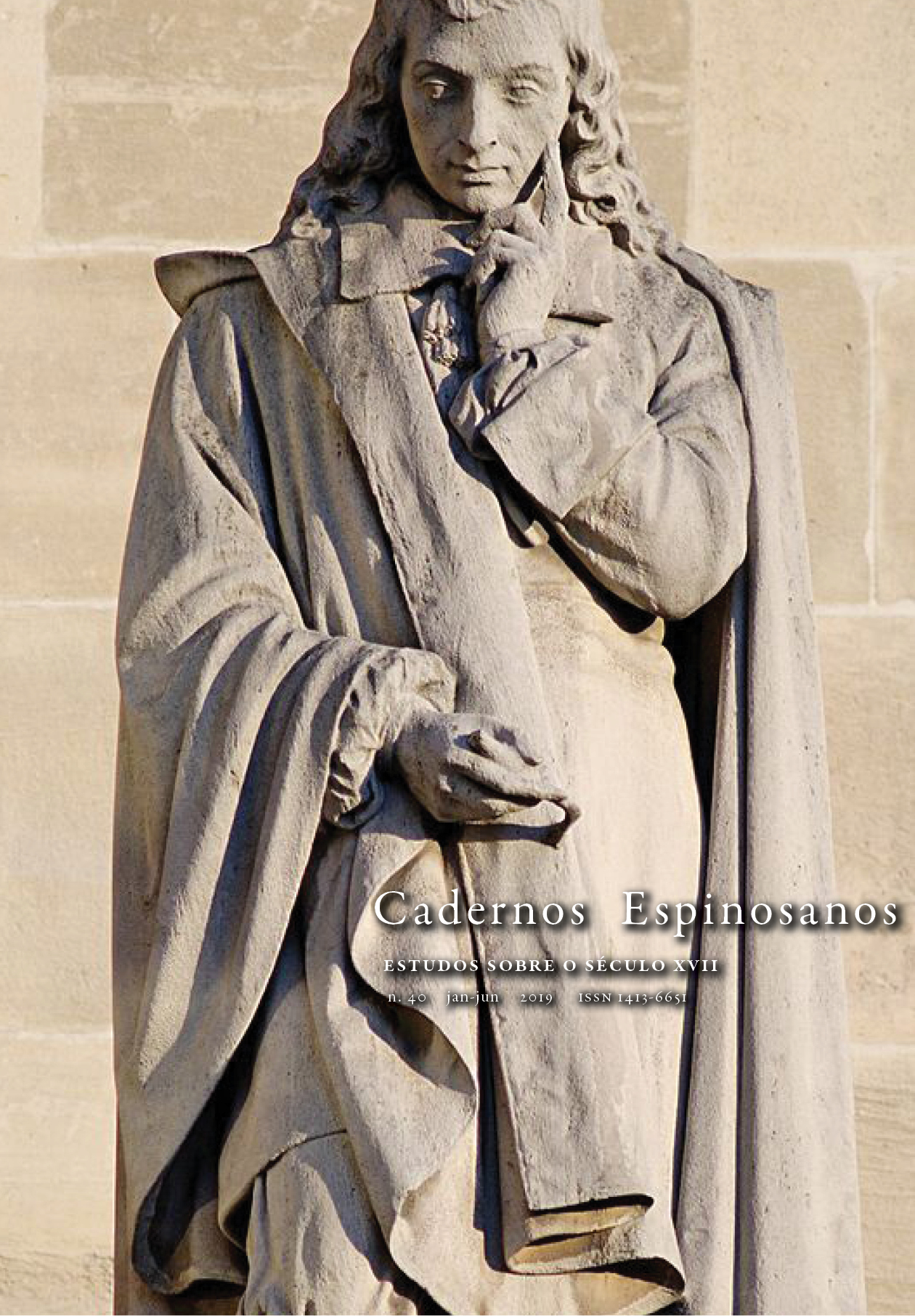THE CONCEPTION OF TRUTH IN THE REASON OF EFFECTS OF PASCAL
DOI:
https://doi.org/10.11606/issn.2447-9012.espinosa.2019.159445Keywords:
Anthropology, Axiomatization, Truth, Method, Epistemology, ParadoxAbstract
This paper aims to discuss the concept of truth in Blaise Pascal’s The Reason of Effects. In the booklet Geometrical Spirit, Pascal detects limits in reasonability, which prevent the absolute apprehension of geometrical principles. According to us, The Reason of Effects method, applied in Pensées, would also be structured under this assumption. In Pensées, Pascal, as confronted with the impossibility of a full apprehension of man, is led to assume a bipolar conception of truth within the scope of the The Reason of Effects method, where these two poles that constitute human nature – misery and greatness – are valued through the original sin. Thus, both in Geometrical Spirit and in Pensées, limits are detected which prevent us from obtaining an absolute conception of truth, both in theoretical and practical sense.
practical sense
Downloads
Downloads
Published
Issue
Section
License
Autores que publicam nesta revista concordam com os seguintes termos:
- Autores mantém os direitos autorais e concedem à revista o direito de primeira publicação, com o trabalho simultaneamente licenciado sob a Licença Creative Commons Attribution que permite o compartilhamento do trabalho com reconhecimento da autoria e publicação inicial nesta revista.
- Autores têm autorização para assumir contratos adicionais separadamente, para distribuição não-exclusiva da versão do trabalho publicada nesta revista (ex.: publicar em repositório institucional ou como capítulo de livro), com reconhecimento de autoria e publicação inicial nesta revista.
Authors who publish in this journal agree to the following terms:
b. Authors are authorized to take on additional contracts separately, to non-exclusive distribution of the article published in this journal (ex.: to publish in institutional repository or as part of a book), with an acknowledgment of its initial publication in this journal.


